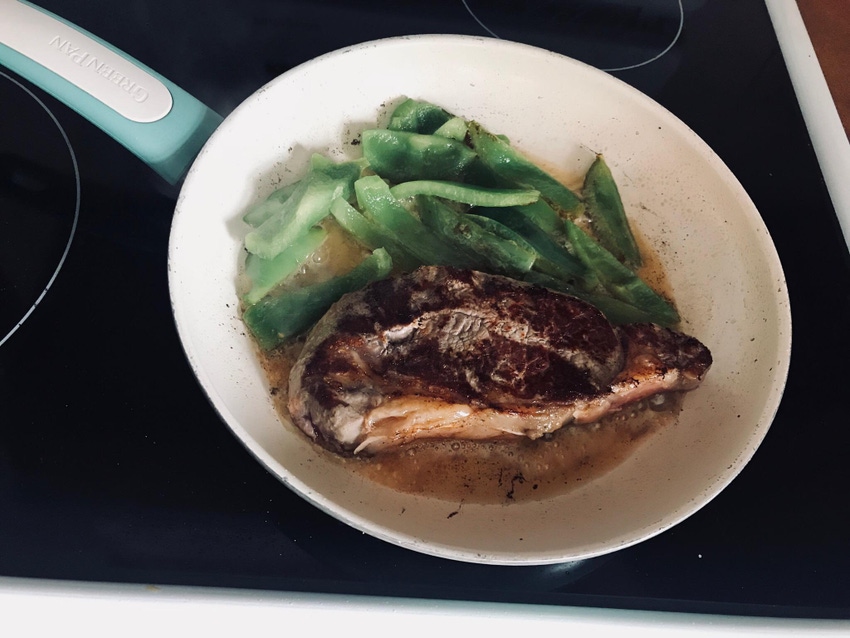Survey links sexism with meat eating
A survey of Texas college students reveals a perceived link between the oppression of animals and women. How should the industry respond?
April 4, 2018

Understanding today’s modern consumer is becoming increasingly difficult. We often scratch our heads at why someone would go meatless; after all, so often their reasoning for ditching an entire food group from their diet is based on misinformation and hysteria. The decisions are usually made after watching some dramatic documentary on Netflix.
Ranchers have been accused of lacking empathy. How could we possibly love our cattle if we are willing to slaughter them for meat?
READ: Addressing the emotion of animal welfare
Of course, our empathy is based more in reality — nurturing a newborn calf that needs extra attention; providing feed, water and shelter for quality of life; and ultimately nourishing our families with nutrient-packed beef and by-products that enrich our everyday lives.
It’s the circle of life; it isn’t always pretty, and that’s where our consumers seem to have a hard time understanding why and what we do.
If you think about it, consumers experiences with animals are mostly limited to their pets. To me, a dog or cat living in a skyscraper in a studio apartment with nowhere to run and play doesn’t seem like the best life; in fact, I would argue that our farm dogs and cats have a superior life with the freedom to roam, explore and exhibit natural tendencies. However, one of my urban friends once accused me of animal cruelty because our pets are kept outside. To each their own, I suppose.
So, if we are looking at ways to meet in the middle in discussions of animal welfare, empathy and compassion, we might have a difficult time finding common ground.
READ: A letter to my critics: Ranching is based on compassion
This is becoming increasingly evident with a recent survey published by the journal Feminism and Psychology that links the oppression of women to the oppression of animals.
According to Ashley Allcorn and Shirley M Ogletree, “Ecofeminists and animal rights advocates have posited a connection between the oppression of women and the oppression of animals. Although male/female comparisons regarding attitudes toward animals have frequently been considered, only limited research has focused on gender roles and animal attitudes. We therefore examined the relation between gender roles and animal attitudes with undergraduate students (260 males, 484 females) at a public university in Texas.
“Participants responded to an online Qualtrics survey that assessed their attitudes toward animals, gender norms, and several forms of sexism. The survey also presented participants with questions about their justifications for meat consumption.
As hypothesized, pro meat-eating justifications were positively related to sexist attitudes as well as traditional gender roles and negatively related to gender role transcendent attitudes. On the other hand, pro-animal attitudes were positively correlated with gender role transcendent attitudes and negatively correlated with benevolent/hostile sexism and traditional gender attitudes. Our results empirically supported “the linked oppression thesis,” that gender and animal attitudes are connected.”
READ: Survey shows more consumers concerned about animal welfare
In a nutshell, those surveyed equate meat eating to sexism, traditional gender roles, oppression of women and the abuse of animals. Meanwhile, a meatless lifestyle is associated with more flexible gender roles, compassion toward women and animals and less focus on the traditional family structure.
If you have raised your eyebrows in confusion, you’re not alone. I, too, am wondering, now how in the world do we address this viewpoint? It’s very tied to the extremes of our nation’s politics right now, so if you’re a meat eater, you must also be an alt-right conservative, misogynist, patriarchal racist (or whatever other derogatory stereotypes you would want to throw in there). And if you prefer salads, you’ve got the edge in all areas that count — spiritual, emotional, intellectual, worldly, compassion, grace, empathy and more.
Forget about the resources that are used to produce a salad. Let’s ignore the natural grasslands that are home to bugs, bees and wildlife (all of which thrive alongside a cattle grazing structure, might I add) as they are wiped away for rows of broccoli and lettuce. A meatless diet is more ethical, compassionate, sustainable and wholesome, they say.
READ: A world without beef is just not sustainable
Before I dive too far into the political rabbit hole and get myself into trouble, I must admit this is a difficult comparison for me to address. Meat eating considered a social taboo? Is our society so far gone they can’t comprehend how ridiculous that is? I may just be ill equipped to take this one on.
Referencing this recent survey, Steven Hayward for the Power Line Blog says that “steak control” could be the next frontier.
In his blog, he writes, “Forget gun control. The next frontier is likely banning beef. Bear with me here: this requires a few moving parts before the punch line.
“First, psychologists will tell you that people who believe everything is connected to everything else suffer from paranoia, though in many cases they are just suffering from liberalism.
“Second, we know that Donald Trump likes his steaks well done, which is a minor character flaw, to be sure. But maybe it helps explain some of the persistent news stories about him. All of this comes together in this article just out from the journal Feminism and Psychology. There you have it. Clearly we won’t rid the world of sexism until we ban ribeyes.”
This may be too left field for me to adequately respond to this; however, while you’re feeding cows or checking for newborn calves today, mull this one over and let me know how you think the industry should respond to this.
The opinions of Amanda Radke are not necessarily those of beefmagazine.com or Farm Progress.
About the Author(s)
You May Also Like





